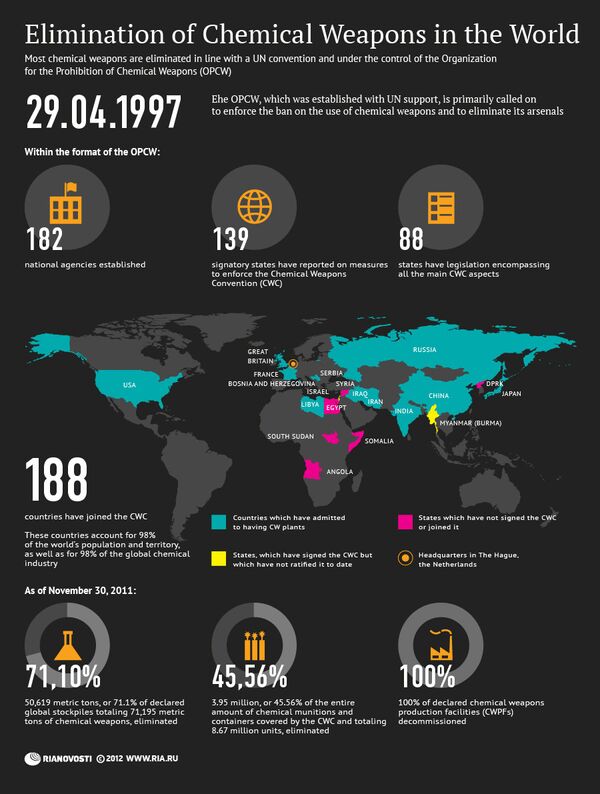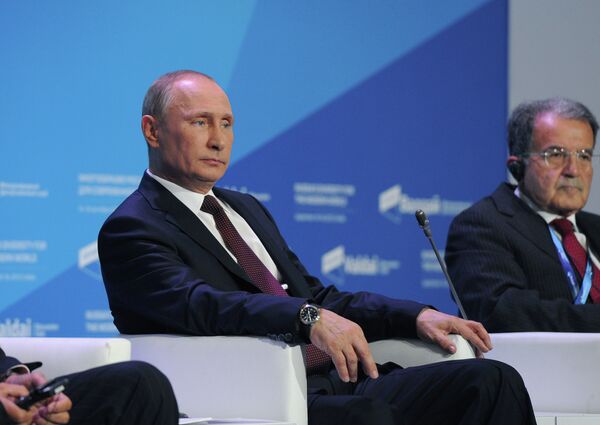VALDAI, September 19 (RIA Novosti) – Russian President Vladimir Putin sharply criticized Western powers on Thursday for their inability to sufficiently plan for the future of Syria without its president, Bashar Assad, and what to do if terrorists come to power in the country.
Speaking at a meeting of the annual Valdai Discussion Club, which includes high-level Russian officials and foreign political scientists, Putin said he had discussed such Syria issues with his Western counterparts and received only a vague and uncertain response to his questions about their future plans for the war-torn country.
“When I have discussions with my [Western] colleagues, I say: All right, in essence, you want to take their [the terrorists’] side and help them to come to power, but then what?” he said, noting that the United States and its allies had acknowledged the fact that al-Qaida-linked groups are part of the forces fighting Assad’s regime in Syria.
“What are you going to do – take a newspaper and slap them away from this power? But it’s impossible, we know it’s impossible, it just can’t be done,” Putin said, citing the failure of Western attempts to instill democracy in Iraq and Libya though military intervention.
According to a recent study by London-based defense consultancy IHS Jane’s, one-tenth of the 100,000 rebels battling the Syrian government are part of factions linked to al-Qaida. Radical Islamist factions are pushing for domination over secular rebel groups, the report said.
Putin reiterated that the use of force in Syria could be authorized only by the UN Security Council rather than as a result of a unilateral decision taken by a country that deems itself “invulnerable.”

Putin said that the consensus on issues of war and peace has been the founding principle of the United Nations and that going against the consensus would undermine the very essence of this international organization.
“It would be a blow to world order, rather than to Syria,” Putin said.
The Russian president reaffirmed that the Syrian crisis could be resolved only through an internal dialogue between the government and opposition forces.
“No matter how hard it would be, we must persuade them to find common points, to come to an agreement, to find the balance of interests,” he said. “Only then may the situation in the country become stable for a long time, or even normalize.”
Putin also pointed out that the use of chemical weapons, which prompted the threat of military intervention in Syria, was most likely a provocation that must be thoroughly investigated.
“If we finally get the answer to the question of who did it, who committed this crime … then we will make the next step,” he said, refusing to blame either side before an indisputable conclusion has been made.
At the same time, he expressed hope that the Syrian government would follow through on its commitment to join the UN Chemical Weapons Convention and destroy its stockpiles of chemical weapons.


